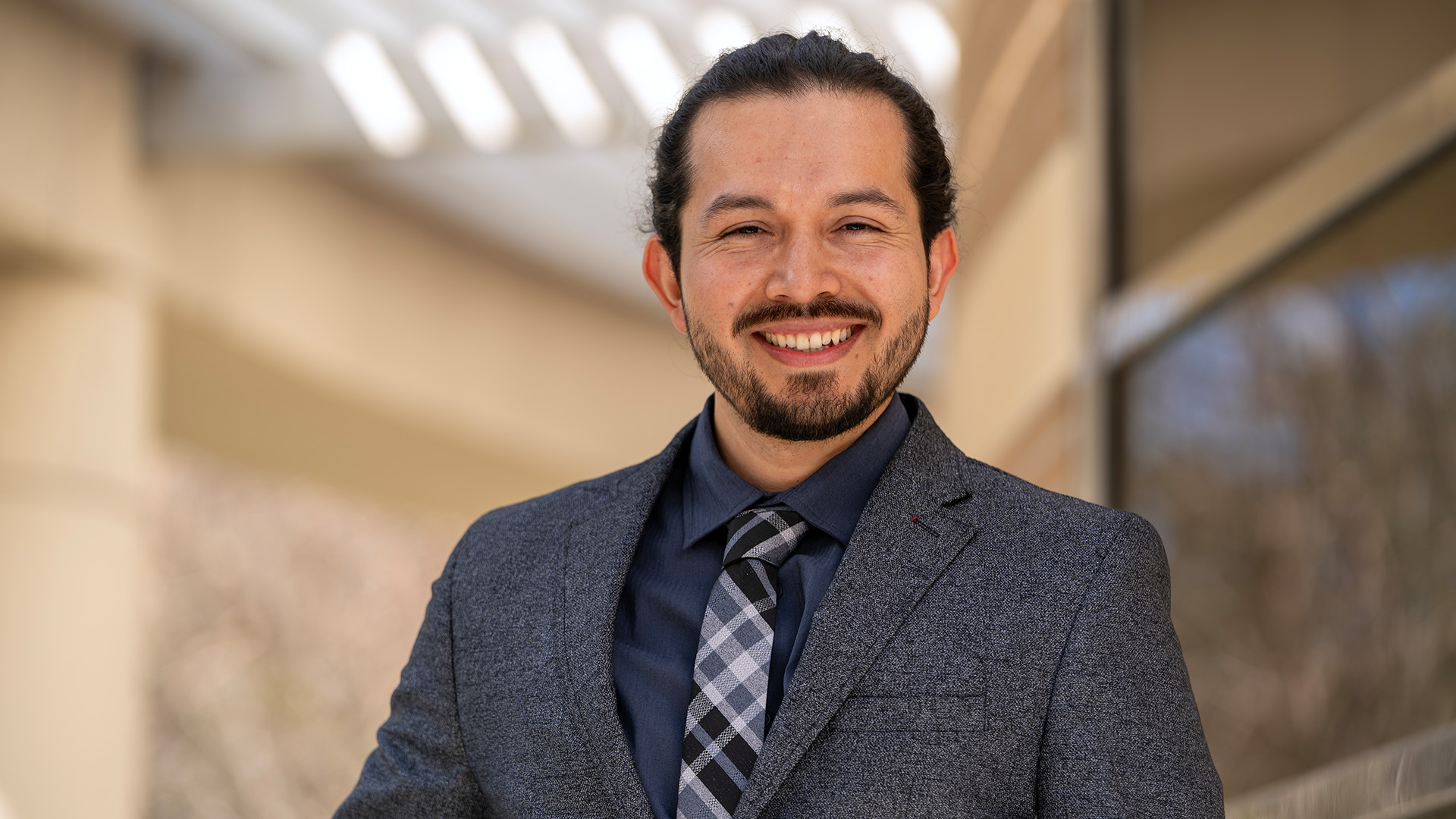Dr. Andrés F. Jola-Sánchez
June 3, 2024
|
By Dorian Martin ’06
 Understanding the Consequences of Conflict on Global Supply Chains
Understanding the Consequences of Conflict on Global Supply Chains
Conflicts — no matter how large or small, or where they’re located — have the potential to disrupt an organization’s operations. Assistant Professor Andrés F. Jola-Sánchezis among the first researchers helping leaders understand the effect of war on supply chain and operations management.
The year 2022 went down in the world’s history as one of the deadliest. Nearly 190 conflicts were recorded, including major events such as Russia’s invasion of Ukraine and the war in Ethiopia, as well as smaller conflicts, such as the Ungkaya Pukan clash in the Philippines.
These aggressive acts — no matter how large or small, or where they are located — have one thing in common: They have the potential to significantly disrupt international business. “Our operations and supply chains are globally connected so these conflicts have consequences,” said Dr. Andrés F. Jola-Sánchez, an assistant professor of information systems and operations management at Mays Business School. “We need to understand these connections and the ripple effects, and then determine how to mitigate the risk of conflict in order to ensure a firm’s smooth operations.”
Living in Conflict
Jola-Sánchez, who is one of the world’s first researchers studying conflict’s effect on operations management and supply chain management, brings a unique and deeply personal understanding to the subject. His childhood and teenage years were spent in Colombia, South America, which in the 1990s was in the middle of a long and deadly civil war involving guerrilla and paramilitary groups as well as drug cartels.
The threat of terrorism was even more omnipresent since Jola-Sánchez’s father was the supply chain and logistics coordinator for one of the nation’s largest oil companies, which was a U.S. subsidiary. “This was a problem because one of the objectives of the guerrillas has been to sabotage foreign oil operations, damage their infrastructure, disrupt their supply chains, kidnap their staff,” the professor explained.
His family had to remain vigilant when making their daily decisions. “My parents were a little bit paranoid about something going on and were extra careful of security. We didn’t have any major issue in relation to being kidnapped or suffering a major violent issue — but fear was always there,” Jola-Sánchez remembered. “Dad had to go into the oilfields that were in conflict areas; so he would travel by helicopters and be accompanied by bodyguards.”
Over time, a combination of factors — his father’s retirement and the de-escalation of the conflict in 2012 — alleviated much of the family’s worries. Yet the entire experience continues to echo through Jola-Sánchez’s research agenda. “A lot of what I’m doing today in terms of research comes as a result of those experiences,” he explained. “I was really inspired by my father’s day-to-day handling of things.”
Following the Data
After earning bachelor’s degrees in engineering and economics, as well as a master’s degree in operations research from Universidad de Los Andes in Colombia, Jola-Sánchez worked for Colombia’s government for four years. That professional experience gave him access to the country’s extensive datasets and his analysis began to identify specific process issues around critical issues such as humanitarian aid deployment in support of the nation’s 8 million displaced people.
Wanting to extend his influence further, Jola-Sánchez came to the United States to pursue a PhD in business at Indiana University. Yet his home country wasn’t far from his mind because he used one of the Colombian datasets to analyze the effect of conflict on hospital productivity.
Since joining Mays’ Department of Information and Operations Management in 2018, he has since expanded his scope of work in relation to conflict. “My work tries to understand the impact of conflict on commercial operations and nonprofit operations, such as rural hospitals that are owned by the government or development projects funded by multilateral organizations, or operations carried out by profit-seeking organizations,” Jola-Sánchez explained. “I focus on understanding how conflict affects their day-to-day processes, such as their day-to-day inventory and operational performance.”
Putting Conflict into the Equation
Yet Jola-Sánchez, who is a fellow at the Bush School of Government & Public Service, Mosbacher Institute for Trade, Economics, and Public Policy, also found that conflict offers some surprising benefits to operations management. “Conflict creates behavioral factors that influence the human component of the production system,” he said, describing a doctor who is working in a remote region in Colombia and has limited resources. “Over time, he’s going to innovate and do things in a better way with the available resources.”
Inventory also can be counterintuitive. “Usually in operations management, we think of inventory as a way to mitigate uncertainty. In conflict, the traditional use of inventory is not clear because the more inventory you have, the more appealing you are to conflict actors,” Jola-Sánchez said. “We’ve found that during times of war, firms will decrease their inventory holdings and will increase their inventories when they go from war to peace. Inventory can change from being a tool to being a threat.”
He cautions that today’s supply chain is not as stable as many would want to believe— and shortcomings will continue to show up in delays, price increases, and inflation. “When it comes to operations and supply chain, the world is more connected than ever,” said Jola-Sánchez, who was named one of the inaugural Texas A&M Research Leadership Fellows in 2023. “Daily things that we use, like computers, employ inputs from places all over the world — and conflict that happens in the Middle East or Eastern Europe will have consequences on what we consume and the way we consume here.”


